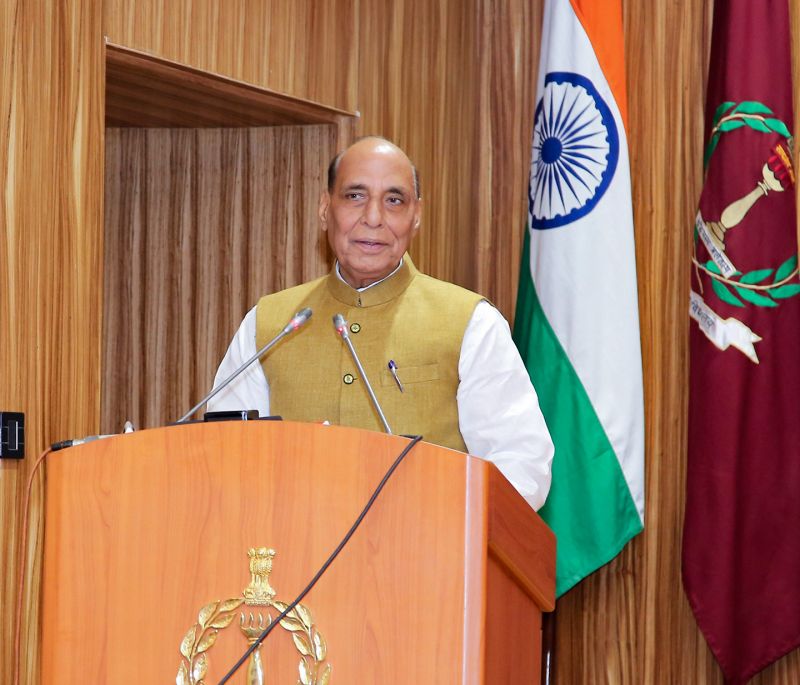Think critically, adapt to unforeseen - RM

“Need to stay prepared to tackle the possibility of adversaries weaponising day-to-day tools & tech”
“Ability to anticipate, adapt & respond will define our readiness to deal with emerging challenges”
Govt’s focus is to make a technologically-advanced & future-ready military, says Shri Rajnath Singh
New Delhi, Oct 19
Defence Minister Rajnath Singh has called upon the military leaders to think critically, adapt to unforeseen circumstances and leverage latest technological advancements to gain a strategic advantage in today’s ever-evolving geopolitical landscape. Addressing the MPhil Convocation ceremony of 62nd National Defence College (NDC) course (2022 batch) in New Delhi on October 19, 2024, he urged the officers to become strategic thinkers who are capable of anticipating future conflicts, understanding global political dynamics and leading with both intelligence & empathy.
“Warfare, today, has surpassed the traditional battlefields and now operates in a multi-domain environment where cyber, space & information warfare are as critical as conventional operations. Cyber-attacks, disinformation campaigns and economic warfare have become tools that can destabilise a whole nation without a single shot being fired. There is a need for military leaders to possess the ability to analyse complex problems and devise innovative solutions,” Raksha Mantri said.
Rajnath Singh described the rapid technological advancements in today’s times as the most crucial force which drives the evolution of a future-ready military. “From Drones and Autonomous Vehicles to Artificial Intelligence (AI) & Quantum Computing, the technologies shaping modern warfare are evolving at a breath-taking pace. Our officers must understand these technologies and be able to harness them,” he stated.
The minister exhorted the defence officers to carry-out in-depth analysis on how best to leverage niche technologies, such as AI, which has the potential to revolutionise military operations. He also stressed on the need to decide on the threshold level of the decisions AI is allowed to take, highlighting the importance of human intervention. Increasing reliance on AI in decision-making processes can raise concerns about accountability & the potential for unintended consequences, he said.
Rajnath Singh underlined the need to stay prepared to tackle the possibility of adversaries weaponising the tools and technologies used by people on a daily basis. “The mere thought that our adversaries exploiting the tools serves as a reminder of the urgency with which we must prepare for these threats. Institutions like NDC must evolve their course curriculum to not only incorporate case studies on such unconventional warfare but also to drive strategic innovation. The ability to anticipate, adapt & respond will define our readiness in the face of ever-evolving challenges,” he said.
He voiced the Government’s resolve of developing a technologically-advanced and agile military, capable of responding to emerging threats & safeguarding national security. He asserted that while efforts are being made to ensure that the Armed Forces remain future-ready and resilient, defence institutions like NDC play a pivotal role in shaping the perspectives of military leaders & equipping them with the expertise necessary to handle the complexities of modern-day warfare.
Rajnath Singh congratulated the officers of the 62nd NDC Course who were awarded the MPhil degree, especially those from friendly countries. He termed them as a bridge between India and their respective nations. He added that challenges and concerns shared during the course would pave the way for enhancing the collective security and prosperity in the region.
Defence Secretary-designate RK Singh, Commandant NDC Air Marshal Hardeep Bains, Registrar, University of Madras Professor S. Elumalai, senior officers of Ministry of Defence and faculty members of NDC were present on the occasion.



